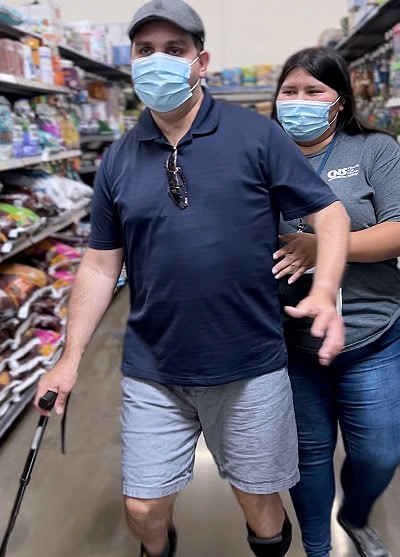For many people who endure a brain injury, the very fabric of their being is subjected to a sudden upheaval. Physical and emotional stability is impacted. The rhythm of life is temporarily or permanently altered. It can devastate a person’s life and disrupt family, work, and interaction with the world. CNS understands these realities and provides effective, comprehensive programs that treat all types of traumatic and acquired brain injuries.
Focused on community reintegration, our therapeutic approach encourages independence and rebuilding core life skills. CNS provides rehabilitation for stroke, mild traumatic brain injury, concussion, and traumatic brain injury. These events may impact cognitive, physical, and psychological capabilities. Physical deficits can impact ambulation, balance, coordination, fine motor skills, strength, and endurance. Cognitive deficits of language and communication, information processing, memory, and perceptual skills are common. Psychological status is also often altered. Adjustment to disability issues is frequently encountered by people with traumatic brain injury. Behavioral issues are a common challenge as well.
CNS is known for its expertise in traumatic brain injury rehabilitation. Case managers work closely with patients, family, and staff to create a supportive atmosphere in which people of all ages can benefit from therapeutic intervention. When treated with individualized therapies and goal-oriented programs, the effects of the injury can be overcome.
Since its inception, CNS has been a world leader in helping people with brain injuries to recover and thrive. A core belief is that comprehensive care is essential for living with purpose and dignity. Our clinical and residential teams collaborate with physicians, insurers, and families to ensure that mutual goals are met. As patients achieve defined goals, staff update insurers and caregivers on progress, suggesting therapies and activities that support growth.

Every brain injury is unique. Thus, every patient requires a treatment strategy specific to their needs. CNS neurologists collaborate with our clinical teams to help patients improve based on their injury, ability, and desire to succeed. CNS believes in the full continuum of treatment, and our depth of knowledge supports this philosophy. CNS sees appropriate care as both cost effective and the best solution for life-long recovery. Medical oversight, combined with evidence-based rehabilitation, gives patients the foundation for a durable, progressive recovery.

This section will help you determine whether or not you or someone close to you suffers from Mild Traumatic Brain Injury (MTBI) or Post Concussion Syndrome.
Traumatic brain injury (TBI) can significantly affect many cognitive, physical, and psychological skills.
In order to better understand how the rehabilitation process works one needs to understand the different parts of the brain, how they function and problems that can result from injury.
Neuroplasticity is the ability of the brain to form and reorganize synaptic connections, especially in response to learning or experience or following injury.
CNS Monthly Newsletter
The latest CNS updates, including events, company information, and patient care developments
The Inside View
Quarterly magazine focused on brain injury research, rehabilitation, and advancements shaping the field
Sign-up for one or both to stay connected with brain injury news and recover